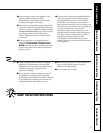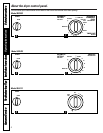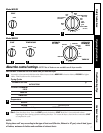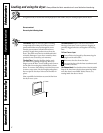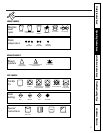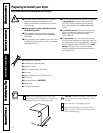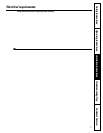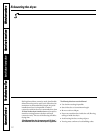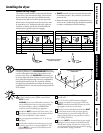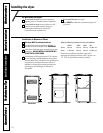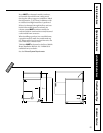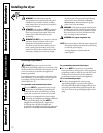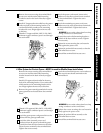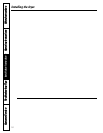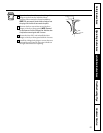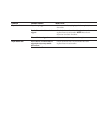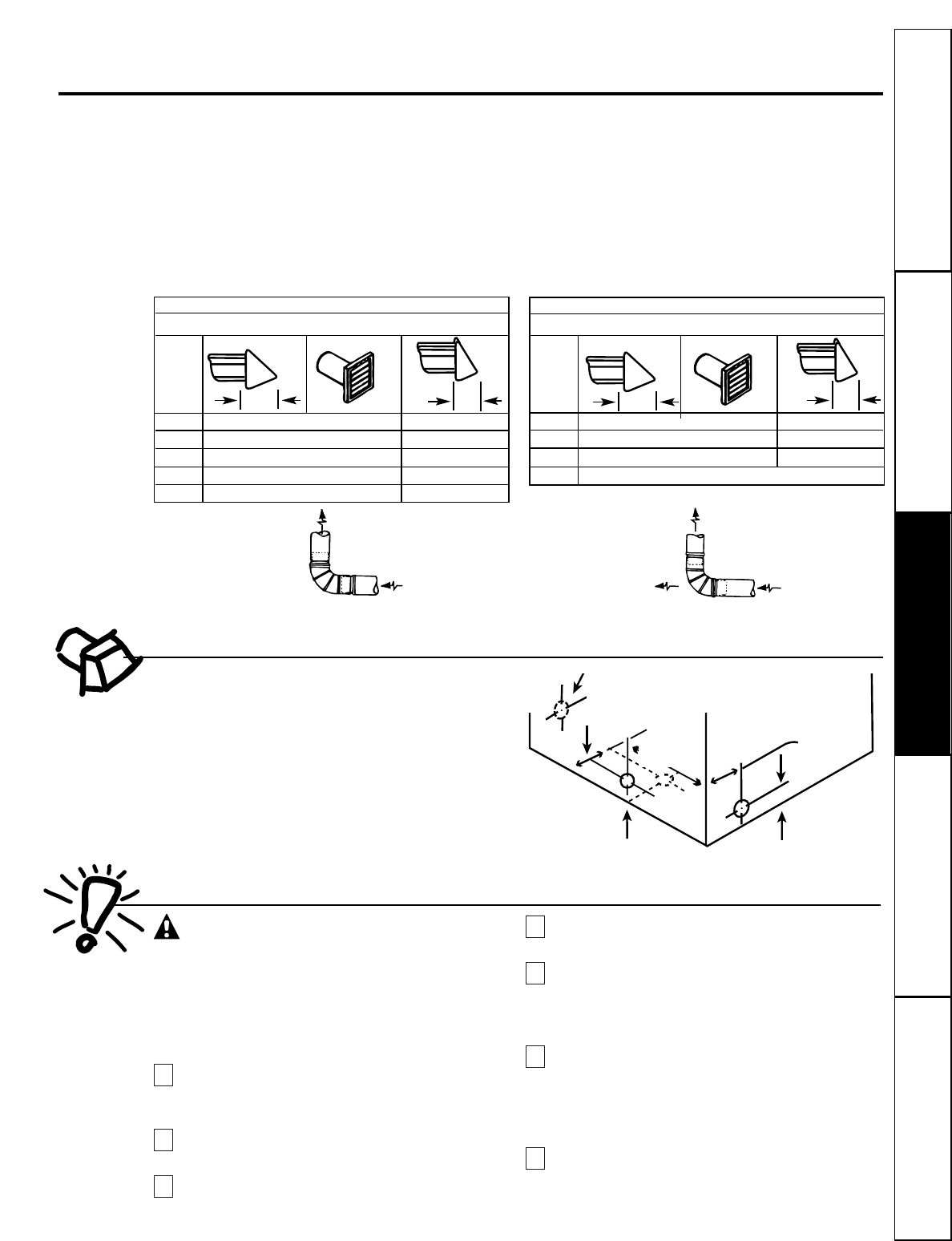
Replace brass connecting pipe that is not plastic-
coated. Stainless steel or plastic-coated brass
MUST
be used.
WARNING:
Never reuse old flexible connectors. The
use of old flexible connectors can cause gas leaks
and personal injury. Always use
NEW
flexible
connectors when installing a gas appliance.
Installation
MUST
conform with local codes, or in
the absence of local codes, with the National Fuel
Gas Code, ANSI Z223.1 (latest edition).
The gas supply line should be of 1/2″ (1.27 cm)
rigid pipe.
If codes allow, flexible metal tubing may be used
to connect your dryer to the gas supply line. The
tubing
MUST
be constructed of stainless steel or
plastic-coated brass.
The gas supply line
MUST
have an individual
shutoff valve.
A 1/8″ (0.32 cm) NPT minimum plugged
tapping, accessible for test gauge connection,
MUST
be installed immediately upstream of the
gas supply connection to the dryer.
The dryer and its individual shutoff valve
MUST
be disconnected from the gas supply piping
system during any pressure testing of the gas
supply piping system at test pressures in excess
of 1/2 psig (3.45 kPa).
The dryer
MUST
be isolated from the gas supply
piping system by closing its individual manual
shutoff valve during any pressure testing of the
gas supply piping system at test pressures equal
to or less than 1/2 psig (3.45 kPa).
7
6
5
4
3
2
1
Customer ServiceTroubleshooting TipsOperating InstructionsSafety Instructions Installation Instructions
Installing the dryer.
Exhaust Direction
All dryers shipped from the factory are set up for rear
exhausting. However, on
ELECTRIC DRYERS
, exhausting
can be on the right or left side of the cabinet or the
bottom of the dryer. On
GAS DRYERS
, exhausting can
be on the right side of the cabinet or the bottom of the
dryer. Directional exhausting can be accomplished by
installing Exhaust Kit, Pub. No. 14-A018, available
through your parts distributor. Follow the instructions
supplied with the kit. Use only metal ducting inside the
dryer cabinet.
Gas Supply Requirements
MAXIMUM LENGTH
of 4“ (10.2 cm) Dia. RIGID METAL DUCT
PREFERRED VENT HOOD TYPE
0 60’ (18.28 m) 48’ (14.63 m)
1 52’ (15.84 m) 40’ (12.19 m)
2 44’ (13.41 m) 32’ (9.75 m)
3 32’ (9.75 m) 24’ (7.31 m)
4 28’ (8.53 m) 16’ (4.87 m)
Exhaust Ducting Length
The exhaust system should be inspected and cleaned
at least once a year with normal usage. The more the
dryer is used, the more often you should check the
exhaust system and vent hood for proper operation.
If roof vents or louvered plenums are used, they must
be equivalent to a 4″ dampered wall cap in regard to
resistance to airflow, prevention of back drafts and
maintenance required to prevent clogging.
•
DO NOT
assemble the duct work with fasteners that
extend into the duct. They will serve as collection
points for lint.
• Ductwork which runs through an unheated area or
is near an air conditioning duct should be insulated
to reduce condensation and lint build-up.
4” (10.2 cm) Louvered
4”
(10.2 cm)
Number of
90° turns
2.5”
(6.35
cm)
MAXIMUM LENGTH
of 4“ (10.2 cm) Dia.
FLEXIBLE METAL DUCT
PREFERRED VENT HOOD TYPE
0 30’ (9.14 m) 18’ (5.49 m)
1 22’ (6.71 m) 14’ (4.27 m)
2 14’ (4.27 m) 10’ (3.05 m)
3 not recommended
4” (10.2 cm) Louvered
4”
(10.2 cm)
Number of
90° turns
2.5”
(6.35
cm)
CORRECT
INCORRECT
INSTALL MALE FITTINGS IN
CORRECT DIRECTION
Same as
other side
EXHAUST DUCT LOCATING
DIMENSIONS
3-3/4″ (9.5 cm)
3-3/4″ (9.5 cm)
13-1/2″
(34 cm)
4-3/8″
(11 cm)
5-7/8″
(15 cm)
13



